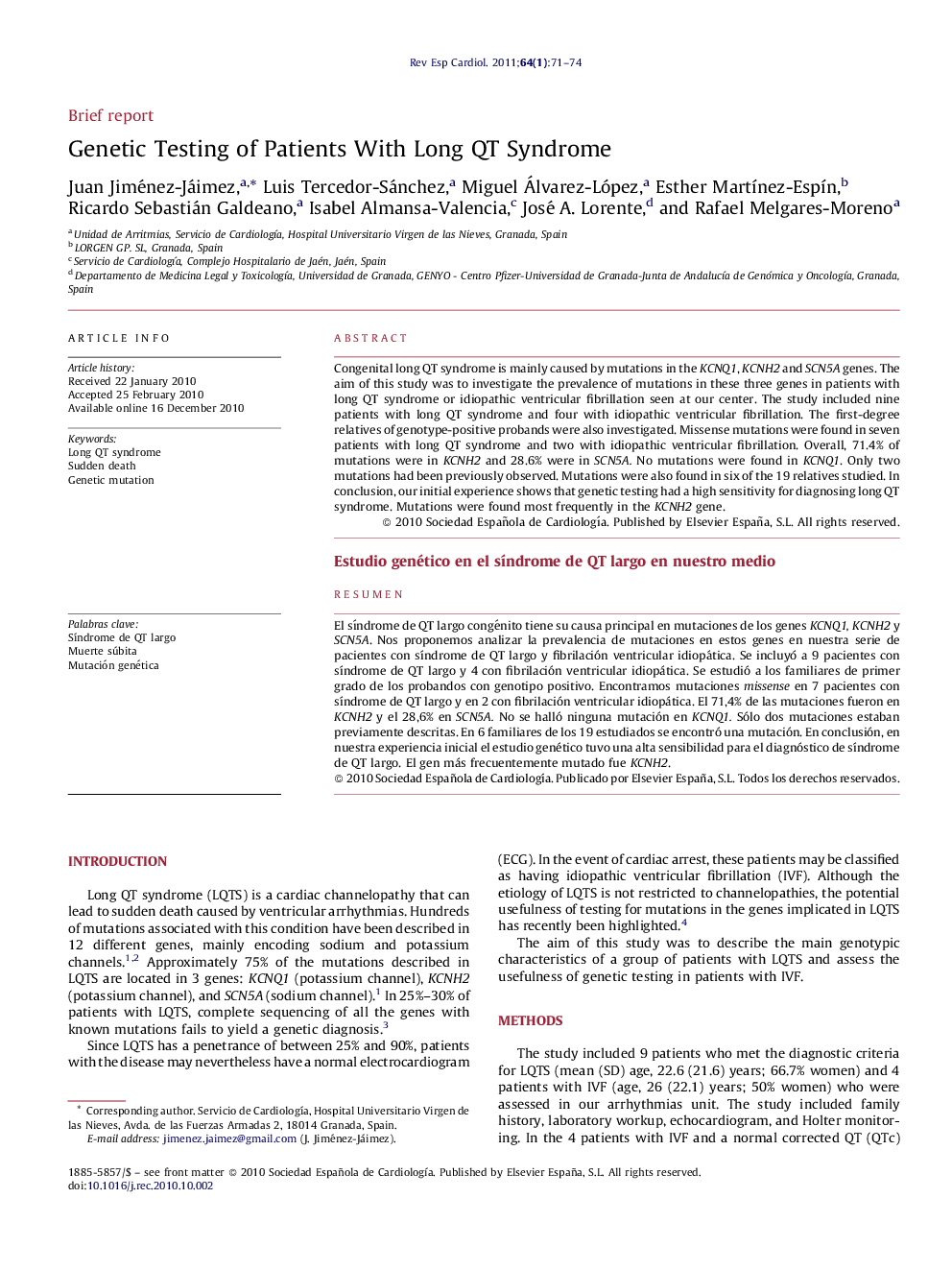| کد مقاله | کد نشریه | سال انتشار | مقاله انگلیسی | نسخه تمام متن |
|---|---|---|---|---|
| 3018589 | 1182176 | 2011 | 4 صفحه PDF | دانلود رایگان |

Congenital long QT syndrome is mainly caused by mutations in the KCNQ1, KCNH2 and SCN5A genes. The aim of this study was to investigate the prevalence of mutations in these three genes in patients with long QT syndrome or idiopathic ventricular fibrillation seen at our center. The study included nine patients with long QT syndrome and four with idiopathic ventricular fibrillation. The first-degree relatives of genotype-positive probands were also investigated. Missense mutations were found in seven patients with long QT syndrome and two with idiopathic ventricular fibrillation. Overall, 71.4% of mutations were in KCNH2 and 28.6% were in SCN5A. No mutations were found in KCNQ1. Only two mutations had been previously observed. Mutations were also found in six of the 19 relatives studied. In conclusion, our initial experience shows that genetic testing had a high sensitivity for diagnosing long QT syndrome. Mutations were found most frequently in the KCNH2 gene.
ResumenEl síndrome de QT largo congénito tiene su causa principal en mutaciones de los genes KCNQ1, KCNH2 y SCN5A. Nos proponemos analizar la prevalencia de mutaciones en estos genes en nuestra serie de pacientes con síndrome de QT largo y fibrilación ventricular idiopática. Se incluyó a 9 pacientes con síndrome de QT largo y 4 con fibrilación ventricular idiopática. Se estudió a los familiares de primer grado de los probandos con genotipo positivo. Encontramos mutaciones missense en 7 pacientes con síndrome de QT largo y en 2 con fibrilación ventricular idiopática. El 71,4% de las mutaciones fueron en KCNH2 y el 28,6% en SCN5A. No se halló ninguna mutación en KCNQ1. Sólo dos mutaciones estaban previamente descritas. En 6 familiares de los 19 estudiados se encontró una mutación. En conclusión, en nuestra experiencia inicial el estudio genético tuvo una alta sensibilidad para el diagnóstico de síndrome de QT largo. El gen más frecuentemente mutado fue KCNH2.
Journal: Revista Española de Cardiología (English Edition) - Volume 64, Issue 1, January 2011, Pages 71–74